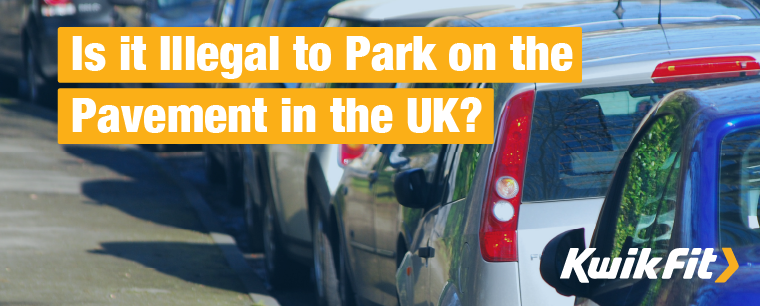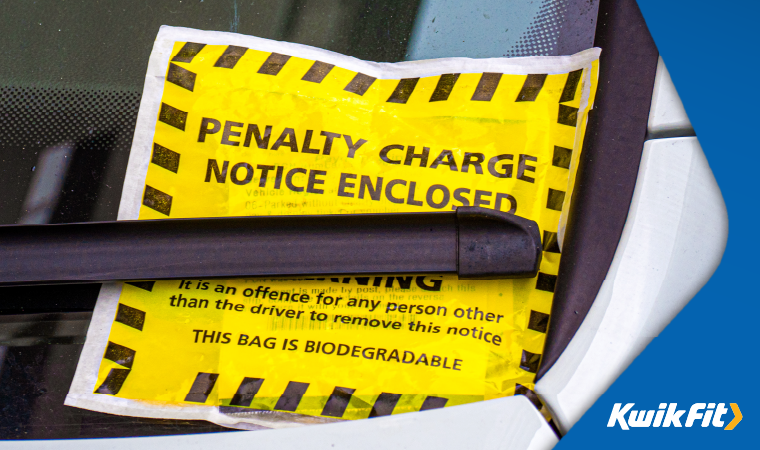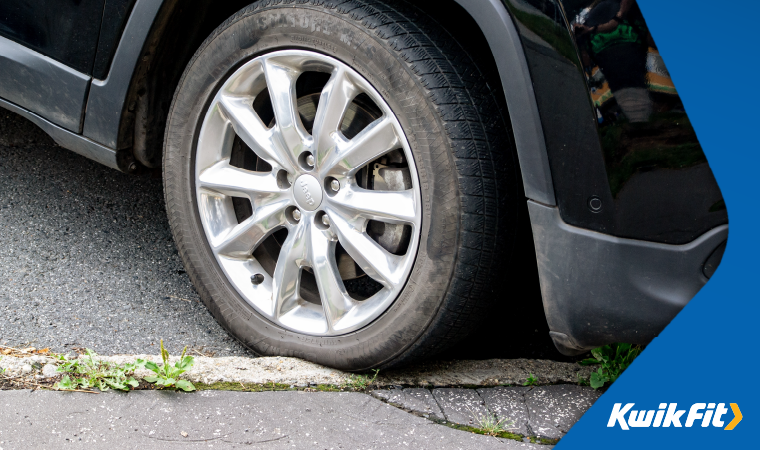Is it Illegal to Park on the Pavement in the UK?
Jack Dreyer | Wednesday 24th January 2024 3:00pm

Navigating the ever-changing parking rules and regulations can be difficult to keep up with in your hometown, let alone understanding the different regulations seen between towns in the UK.
As our towns and cities get busier, potential parking spots grow few and far between - with parking on the pavement becoming a cause for concern among local citizens and the authorities.
Parking on the pavement has sparked considerable debate, with it often being common practice in the UK’s cities and suburbs. In this blog we delve into the current laws, whether it is actually illegal, and if the rules are changing anytime soon.
Is it illegal to park on the pavement?
So.. let's start with the basics - what constitutes parking on the pavement? According to Compare the Market, it refers to the act “when one or more of a vehicle's wheels are on the pavement”. This practice can obstruct the path for pedestrians, creating inconvenience and safety concerns.
There is no simple answer to whether or not this is illegal, with it being a very grey area, but in short - parking on the pavement is not illegal outside of London. You can, however, still get a fine for doing so in some instances, which is what sparks the debate in the first place.

General rules
Government guidance in the Highway Code states: “You MUST NOT park partially or wholly on the pavement in London, and should not do so elsewhere unless signs permit it. Parking on the pavement can obstruct and seriously inconvenience pedestrians, people in wheelchairs or with visual impairments and people with prams or pushchairs.” This means that parking on the pavement is prohibited by default unless there are clear signs indicating otherwise.
As we recognised early on in this blog, although you must not park on the pavement in London, there are exceptions seen across the breadth of the UK - hence why many drivers find themselves with unexpected tickets and fines. Some areas, especially in urban locations, may have specific permissions or designated areas where pavement parking is allowed, or it may not be as much of a cause for concern.
Why is it regulated?
Although frustrating at times, parking on the pavement - whether it be partially or wholly on the path - can cause issues for other road users, and there is sound reason as to why it is regulated.
- Accessibility - Pavement parking can obstruct access, therefore making it difficult for those with disabilities, parents with buggies, or the elderly to walk safely on the path.
- Safety - Pavement parking can be a cause for concern for both pedestrians and other vehicles. This can force individuals to walk in the road, as well as cause congestion on narrow roads.
- Road traffic laws - The short of it is, that it is against traffic regulations across the country.
- Emergency vehicle access - Parking on the pavement can hinder emergency vehicles getting to their destination in urgent situations.
While the general consensus is that parking on the pavement is illegal, or at least unadvised, government law states that some areas may have specific permissions or designated areas with road markings where it is legal. The key is to pay close attention to signage, and, if in doubt, try to find alternative places in which to leave your car.

Are the rules changing?
We have already seen a significant change when it comes to pavement parking over the past couple of years, and this is said to become even more so in the years to come. As of December 11th 2023 we saw updates to the law in Scotland, where motorists in some areas of the country will not be able to park their cars on the pavement from now on - with those who do being given either a Penalty Notice of £100, or finding that their vehicle has been removed.
The Department for Transport (DfT) has announced it’s also considering bringing the rest of the country in line with the capital’s rules – which could land drivers with a £70 fine if rolled out.
So, should I park on the pavement?
Now we have discussed the laws and regulations around pavement parking, it's time for us to give you our opinion. Where possible, avoid parking on the pavement - partially or wholly - anywhere in the UK. This way, you ensure that you’re not obstructing access for pedestrians or other road users, and you won’t be at risk of potential fines.
Interested in learning more about your vehicle, and do’s and don’ts when it comes to driving on the UK’s roads? Keep up with our latest Kwik Fit blogs. Or, if you’ve got any specific questions, get in touch with the friendly team in your local Kwik Fit store today.
Any facts, figures and prices shown in our blog articles are correct at time of publication.
Featured Articles
Is it Illegal to Drive With One Headlight?
Saturday 19th July 2025
Wondering if it’s illegal to drive with one headlight? Learn about the safety risks and penalties of illegal blown bulbs and why you should fix them promptly.
Air Con in EVs & Hybrids: Experts Answer Your Questions
Monday 30th June 2025
Does air con drain EV batteries? Can you use the air con while charging an electric car? Find out the answers to these questions & more from Kwik Fit’s experts.
Why Is Your Car Making a Noise? Fixes & Tips
Friday 13th June 2025
When your car starts making unexpected noises, it can certainly be quite disconcerting; it may be nothing to worry about, but here’s what you need to know.









